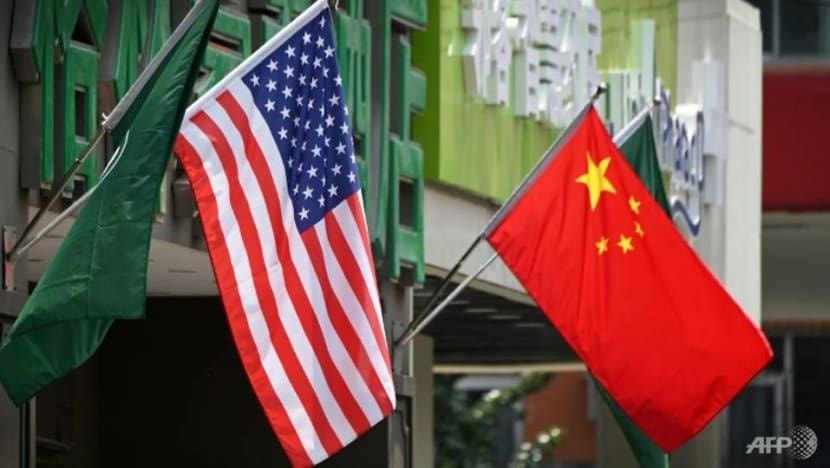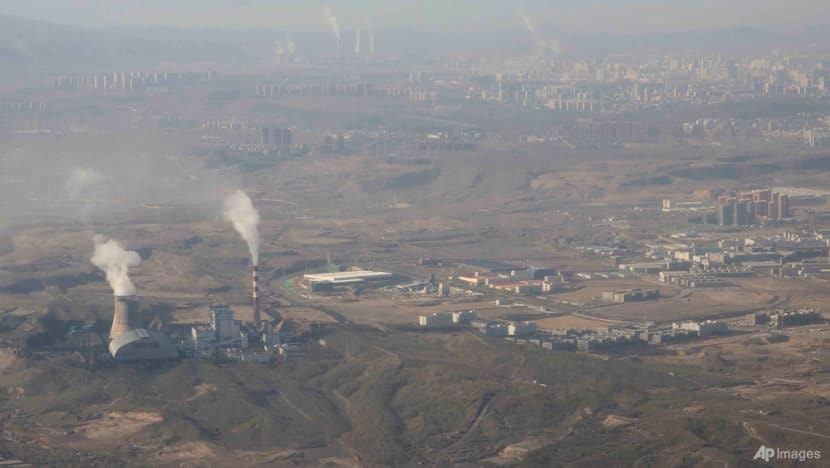US-China tensions affect progress on global climate issues
(Baonghean.vn) - China's decision to suspend bilateral negotiations with the US on climate change has raised many doubts about whether the world can muster enough aspiration to promptly address global warming and avoid the worst impacts...
 |
Chinese and American flags hang outside a Chinese store. Photo: AFP |
Responding to climate change has always been one of the important areas of cooperation between the two superpowers, which are also the two largest greenhouse gas emitters in the world. However, China recently suspended negotiations on this issue when there are less than 100 days left until the COP27 International Climate Summit. Western media said that this was part of a retaliation move against US House Speaker Nancy Pelosi's visit to Taiwan a few days ago.
“No country should be held back on vital transnational issues because of bilateral disagreements,” said John Kerry, former US Secretary of State and now the top climate diplomat in the Joe Biden administration. “Stopping cooperation doesn’t punish the United States, it punishes the world, especially developing countries.”
Over the past few years, climate change has remained a broad avenue for cooperation between the US and China, even as tensions escalate on other issues such as trade, human rights, forced labor, etc.
US and Chinese officials have begun to step up their engagement on climate issues ahead of the UN COP27 climate summit, scheduled for November in Egypt. But Pelosi’s visit to Taiwan this week angered Beijing, triggering unprecedented Chinese military exercises in the waters and airspace around the island.
Previous bilateral engagement between the two countries helped pave the way for the 2015 Paris Climate Agreement, and the resumption of international climate talks in Glasgow in 2021.
As a key climate summit looms and countries fall behind on the emissions reduction pledges they made in Glasgow, analysts say the lack of engagement between the two superpowers could upset the talks and erode aspirations among others.
“There is a fear that US-China tensions could become an excuse for countries that are reluctant to move forward,” said Bernice Lee, executive director of the Centre for Sustainable Resource Economics at Chatham House. “It is absolutely vital that the international community, particularly vulnerable developing countries, continue to ensure that major emitters continue to deliver on their promises.”
Mr. John Kerry - US Special Envoy on Climate Change, often said that the US and China can separate climate change as a field for common discussion because of its global importance without getting entangled in other complicated issues.
 |
Smoke rises from the Urumqi Thermal Power Plant in western China in April 2021. Photo: AP |
“Letting geopolitics now dominate the more important issue of climate represents a shift in Beijing’s approach – from seeing the value of enabling climate to be an independent ‘oasis’ in the relationship to accepting defeat by those who think entirely through a geopolitical lens,” said Thom Woodroofe, a fellow at the Asia Society Policy Institute.
Domestic pressure could force China to continue tackling some of its emissions, even as diplomatic relations cool. Analysts say China could move forward with plans to cut methane, for example. The bulk of the country’s methane emissions come from coal mines.
“There is a huge effort by policymakers in China to come up with a domestic plan to curb methane emissions,” said Joanna Lewis, professor of energy and the environment at Georgetown University. “Even if international engagement on this topic is paused, the domestic battle over methane will not stop because it is a very big part of China’s strategic plan to control emissions.”
Other observers also said that the pause in negotiations could be temporary, as the US and China have often joined forces, even in volatile relations over the years.
“This has always been an up-and-down relationship,” said Alden Meyer, senior partner at consultancy E3G. “I think the question is whether this is a short-term tactical move by Beijing to get Washington’s attention, or is it part of a larger, long-term strategic adjustment by China?”

